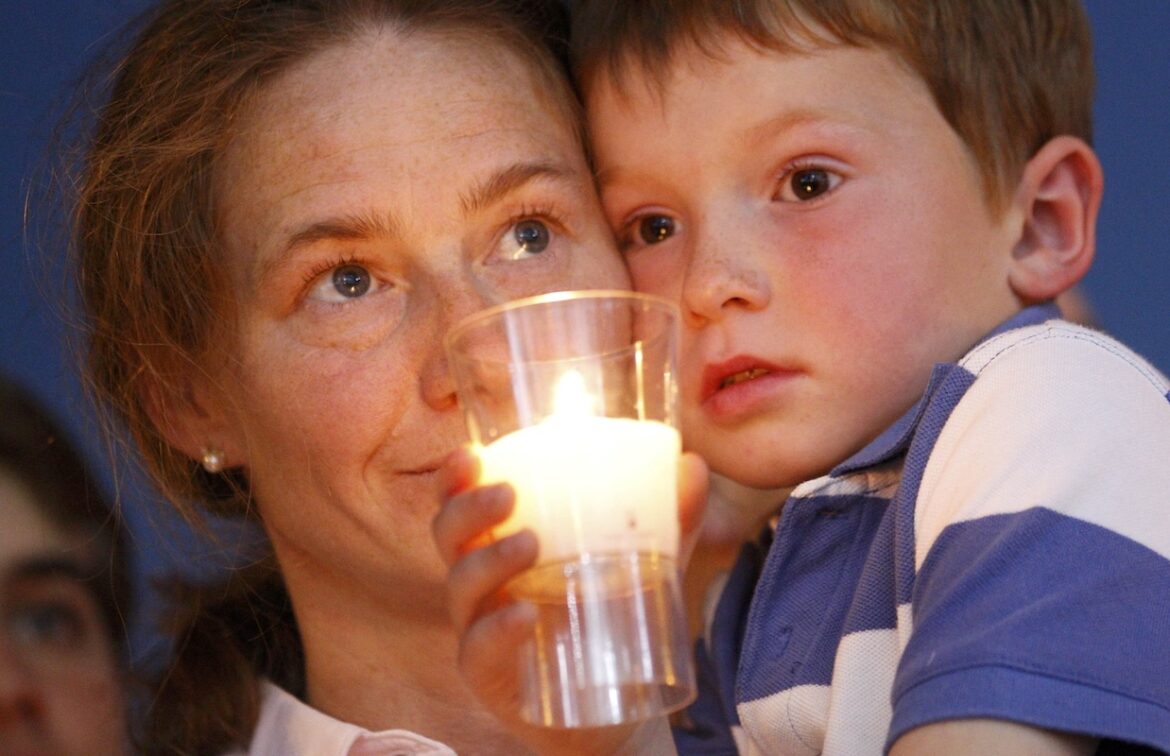Several years into young motherhood, I volunteered to prepare parish second graders for their first Communion.
The weekly classes with 18 children often felt like 45-minute exercises in humility, but my goal was to ensure that when the children experienced their first encounter with the Flesh and Blood of Christ, they knew it really was Jesus, and that Jesus really did know them, love them, and long to be received into their bodies, hearts and minds.
Brief classes meant there wasn’t much time left to train the children in spiritual supplication, but I did guide them (week after week), through halting recitations of the “big three” prayers which form the bedrock of Catholic orisons — the Our Father, Hail Mary and Glory Be.
I say “halting” because while the children remembered that we’d done this before, the prayers never flowed easily off their tongues. While I dedicated three distinct classes to teaching what all those unfamiliar and mysterious words meant, retention wasn’t happening.
So, when a mother angrily questioned why her daughter didn’t know the Our Father, I sassed back a little: “Well, I have 45 minutes a week with them. YOU have every day; are YOU teaching it to her? Are you praying with your kids? That’s actually your JOB, you know, to teach them how to pray by your own example. Are YOU praying?”
I’d expected a solid clap-back from the mother but instead her eyes grew wide and she stood silently for a moment before nodding her head. “Yeah,” she considered. “I guess you don’t really have time.”
At her thoughtful response, I gentled my tone. “Kids need to see their parents praying, you know, and to be invited to pray with them. That’s how they learn their prayers. That’s the first and most important way that they begin to learn about faith.”
By spring, that little girl was happily leading the class in recitation. One day I ran into her mother at the Stations of the Cross, and she pulled me aside. “You were right. Until we had words, I never thought about it, but it really was our role to be our kids first teachers. And answering their questions has helped us to learn more, ourselves!”
The parents became active in the parish, the father becoming an usher and the mom eventually picking up my class when I could no longer teach.
Fast forward 40 years and a pre-Mass plea for instructors to teach older children preparing for confirmation. Now in semi-retirement, I figured I could help.
After our first meeting, our director asked me how it went.
“These poor kids, they cannot READ!” I blurted out in honest horror. “It broke my heart to see it!”
“I know,” she acknowledged sadly. “COVID and video-schooling really left them at a disadvantage.”
“And they don’t know the Our Father or the Hail Mary! They know no prayers at all!”
“We try to remind parents to pray with their kids…” she drifted off. She is a very kind woman who has been doing this for over 30 years. She understands how deeply parental involvement matters.
“They don’t actually KNOW what a crucifix is,” I ranted. “None of them say they’ve seen a crucifix in their homes! I ended up dragging them over to the crucifix and explaining it — why it’s different from an empty cross, and why we keep it before us. One girl actually seemed a little interested, for a minute.”
“Yes, it’s tough when they’ve been in school all day and it’s dinner time.”
That night I went to a Catholic supply site, ordering a dozen small standing crucifixes. They’re all blessed and ready to be given out at our next session. I sense a long, hard road before us.
Parents, PLEASE: Pray with your children, at least the “big three” prayers. Memorized prayers are foundational, giving your kids a starting point — the words with which to begin, when they find themselves really needing and wanting to turn to God.
Parents PLEASE: Get a crucifix (or two!), and perhaps a statue of Mary or an icon. Place holy things around your house; explain what they are to your children, and why they are important and good to have near.
Parents PLEASE: Set aside a half-hour a night when all media are silenced and READ aloud to your children. It is a great and bonding gift to be read to; it helps spark the imagination and creates curiosity about books and stories. It helps kids build a vocabulary of self-expression and human reference that they will need in life.
Parents, PLEASE: Creating Christians who are whole human beings is all of our jobs. But it’s yours first.
Elizabeth Scalia is editor at large for OSV. Follow her on X @theanchoress.




